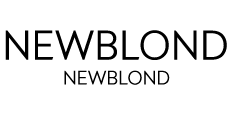
Understanding Pocket Option Regulation
Pocket Option is a well-known trading platform that has gained popularity due to its user-friendly interface and compelling features. However, one of the most crucial aspects that potential users need to be aware of is whether pocket option regulated pocket option regulated or not. Regulation in the financial trading world plays a vital role in ensuring safety and trust. In this article, we will delve into the specifics of regulation, its benefits, and how to ensure you are trading safely with Pocket Option.
What Does Regulation Mean?
Regulation in the financial trading sector generally refers to the rules and laws that govern trading platforms and brokers. Regulatory bodies oversee these platforms to ensure that they operate fairly and transparently. For traders, being with a regulated broker means higher safety nets for investments, better market practices, and mechanisms in place for resolving disputes. It also implies that the broker adheres to important standards that protect traders and their funds.
Pocket Option and Its Regulatory Framework
Pocket Option claims to have regulatory measures in place that aim to protect its users. The platform is not regulated by any major financial authority, such as the Financial Conduct Authority (FCA) in the UK or the Commodity Futures Trading Commission (CFTC) in the USA. Instead, it operates under the jurisdiction of various lesser-known entities. While this may raise some flags, it’s commendable that they still strive for transparency and security for their traders.
Benefits of Trading with a Regulated Broker
1. **Client Protection**: Regulated brokers are obligated to keep clients’ funds in segregated accounts, ensuring that mishaps or insolvency do not affect traders’ money.

2. **Dispute Resolution**: A regulatory authority provides a clear framework for resolving disputes between clients and brokers. This is essential for those who believe their rights have been violated.
3. **Fair Trading Practices**: Regulated brokers are compelled to conduct trading fairly and transparently, adhering to strict guidelines on pricing and execution.
4. **Accountability**: Being regulated means that the broker is accountable for its actions. This factor serves as a deterrent against fraudulent practices.
Risks of Trading with Non-Regulated Brokers
Trading with a non-regulated broker can pose a significant risk for traders. Some of the risks include:
- Loss of Funds: There is no guarantee for the safety of your funds, which means you could potentially lose your deposits without recourse.
- Scams and Fraud: Unregulated brokers may engage in persuasive advertising and deceptive marketing tactics, often leading to unfair trading practices.
- No Regulatory Oversight: A lack of oversight means there may be significant issues that go unchecked, making it easier for dishonest practices to flourish.
- Limited Legal Recourse: If you face problems with a non-regulated broker, your legal options for recourse may be severely limited.
How to Determine if a Broker is Regulated
Before deciding to trade with any broker, it’s essential to confirm its regulatory status. Here are some steps to take:
- **Check Registration**: Look for the broker’s registration information on the website. Regulated brokers will usually display their license number prominently.
- **Research the Regulatory Body**: Once you have the registration number, you can contact the regulatory authority to verify that the broker holds a valid license.
- **Read Reviews**: Trade reviews provide insights from other traders about the broker’s practices and can help you identify any red flags.
- **Consult Online Resources**: Websites dedicated to consumer protection and financial safety can also offer valuable information regarding various brokers.

Best Practices for Trading on Pocket Option
If you decide to trade on Pocket Option, consider the following best practices to enhance your trading experience:
1. **Start with a Demo Account**: Before placing real funds on the line, practice with a demo account to understand the platform better.
2. **Educate Yourself**: Take advantage of educational materials provided by Pocket Option. These can enhance your trading strategies and market analysis skills.
3. **Set a Budget**: Determine how much you are willing to risk and keep to that budget to avoid emotional trading decisions.
4. **Stay Informed**: Keep track of market news and trends. The more informed you are, the better your trading decisions will be.
5. **Withdraw Profits Regularly**: Don’t forget to withdraw your profits occasionally. This prevents the temptation of the “next big win” and helps secure your gains.
Conclusion
In conclusion, while Pocket Option presents an attractive trading platform with numerous opportunities, understanding its regulatory status and the importance of trading with regulated brokers cannot be overstated. Proper research and education pave the way for a successful trading experience. Being aware of the risks involved and having the right tools can significantly enhance your chances of trading successfully.
